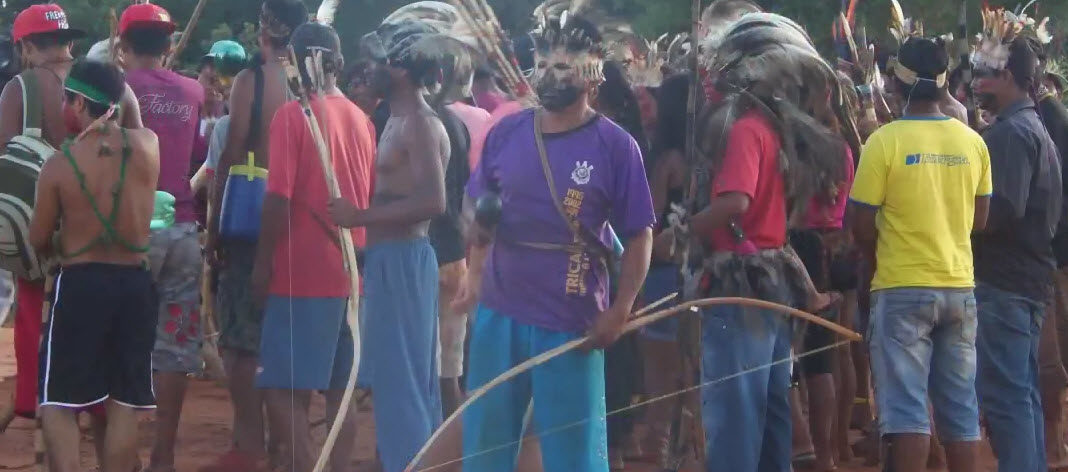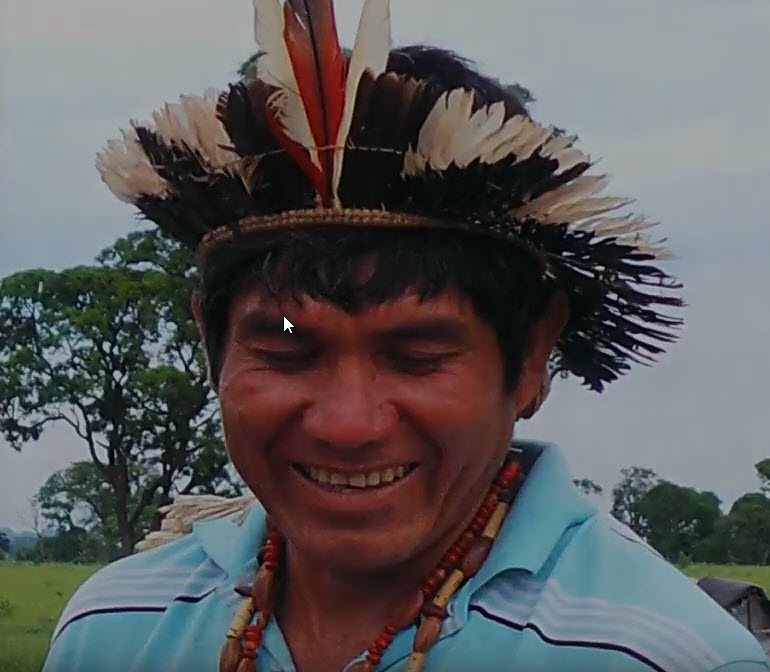
Ladio Veron will be in Britain from April 17-21. Final dates and venues to be confirmed, but the schedule includes:
April 18 – Public meeting at SOAS, Russell Square, London
April 19 – Indigenous People’s Day in Brazil. Protest at the Brazilian Embassy in London, Cockspur St, London SW1
Please confirm details with Sebastian Ordoñez Muñoz, Programme Officer at War on Want (smunoz@waronwant.org)2014 Video interview with Ladio Veron by Tekoha Takwara Violence, murder, rape and humiliation – that is the situation faced by the Guarani Kaiowá Indians as they fight to regain the lands taken from them by the Brazilian government and given to farmers.
“We don’t want to die any more, we want to survive. ..The congressmen have no pity for our women, old people, children…. The government is in the hands of agribusiness – we are surrounded… we are appealing for help.” –Araldo and Ladio Veron.
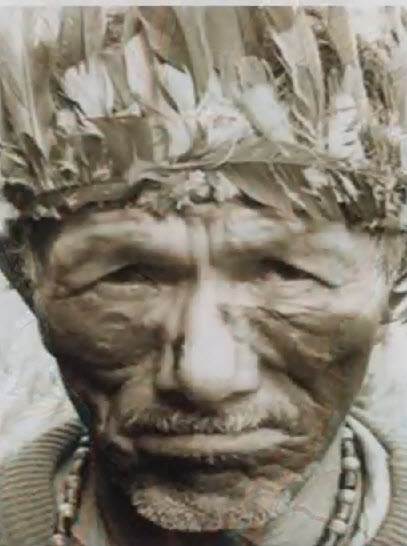
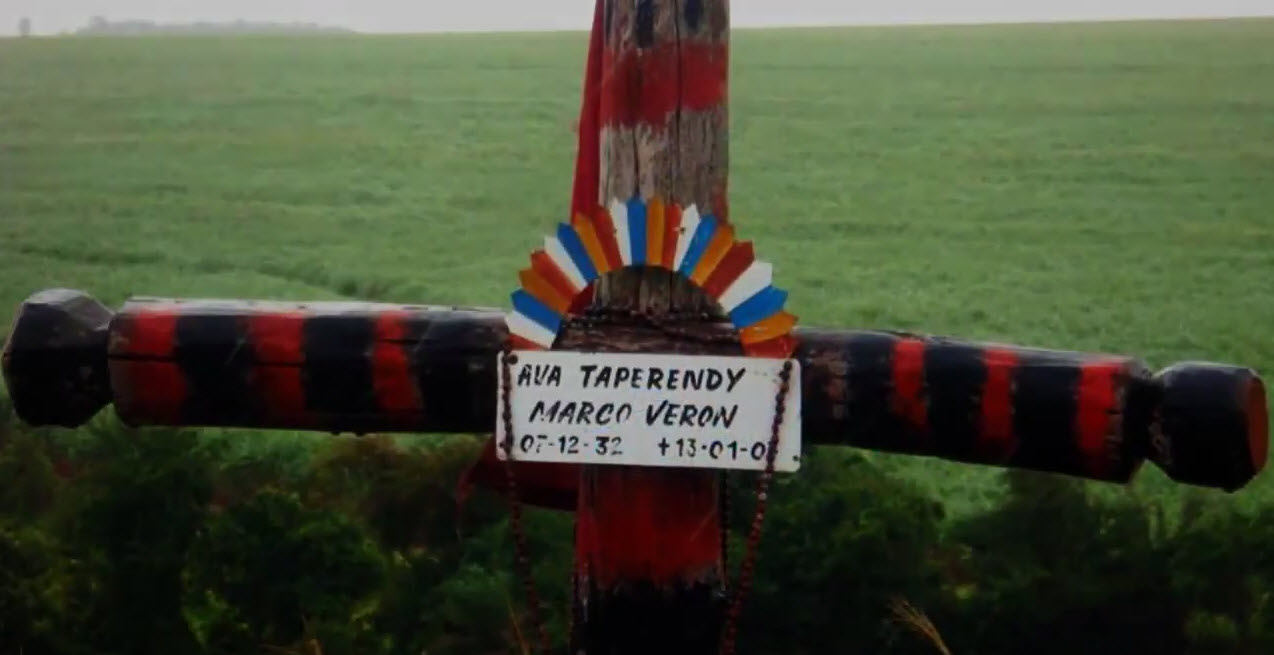 Marco Veron, father of Araldo and Ladio, was murdered by gunmen in 2003. The brothers themselves are threatened.
Speaking in São Paulo, the caciques recalled the seizure of their lands which began in 1953, under President Getulio Vargas, when the Indian Protection Service, the SPI — the agency which preceded FUNAI — moved all the Guarani communities and confined them in 8 ‘aldeamentos’, or villages.
MA student Clara Barbosa, a leader of the Kaiowá women’s assembly, said “they call us miserable savages.”
Marco Veron, father of Araldo and Ladio, was murdered by gunmen in 2003. The brothers themselves are threatened.
Speaking in São Paulo, the caciques recalled the seizure of their lands which began in 1953, under President Getulio Vargas, when the Indian Protection Service, the SPI — the agency which preceded FUNAI — moved all the Guarani communities and confined them in 8 ‘aldeamentos’, or villages.
MA student Clara Barbosa, a leader of the Kaiowá women’s assembly, said “they call us miserable savages.”
“Mato Grosso do Sul has become a sea of sugarcane, soy, and cattle…. Brazil has a duty to return the land to the Indians, even where there is no more forest, no more fish in the rivers, only cattle grass and pesticides. But we still want it because it belonged to our ancestors, it is sacred, we still hear the voice of our ancestors there. We are nature, we are the land.” –Clara Barbosa
Demarcation halted
The 1988 Constitution established a five year deadline for the demarcation of all indigenous areas in Brazil. But the deadline came and went, and most remained undemarcated. That was when the Guarani Kaiowá decided that the only way to get their lands back was to do it themselves, in ‘retomadas’. Under the governments of Lula and Dilma there were no demarcations, and the present government of Michel Temer has not only chosen an openly anti-indigenista congressman, Osmar Serraglio, as his new Justice Minister, but reduced FUNAI to a toothless lion, without funds or staff. In Congess and in the government, the powerful lobby of the ruralistas calls the shots, with a series of laws and decrees that reduce the area and revoke the protection of indigenous areas.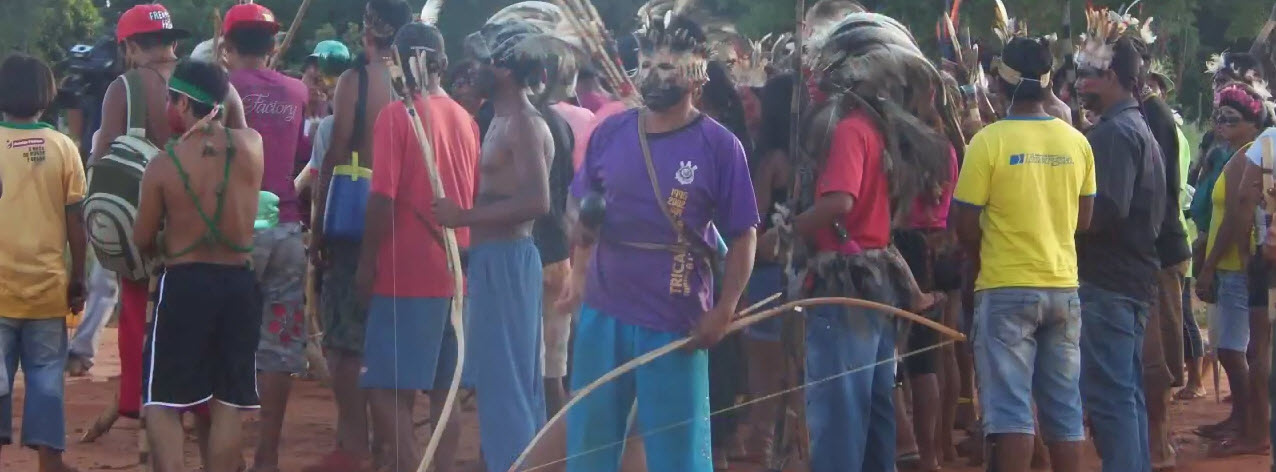
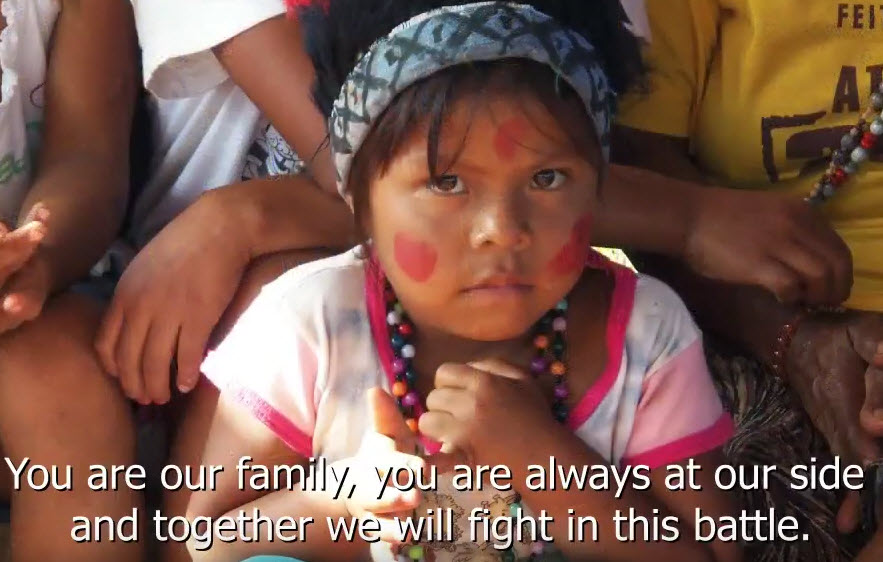 That day seems a long way off. Nowadays with a hostile government and judiciary, and little coverage in the Brazilian media, violence and harassment happen all the time. A few days ago a Kaiowá was stopped by police as he drove a truck with his old fridge in it to be repaired. They accused him of stealing it, hit him with their guns, and left him in a cell for several hours, until witnesses came to prove his innocence.
Maybe it is time for a campaign in Brazil: “Indigenous lives matter”.
All images taken from YouTube video by Tekoha Takwara.
That day seems a long way off. Nowadays with a hostile government and judiciary, and little coverage in the Brazilian media, violence and harassment happen all the time. A few days ago a Kaiowá was stopped by police as he drove a truck with his old fridge in it to be repaired. They accused him of stealing it, hit him with their guns, and left him in a cell for several hours, until witnesses came to prove his innocence.
Maybe it is time for a campaign in Brazil: “Indigenous lives matter”.
All images taken from YouTube video by Tekoha Takwara.

